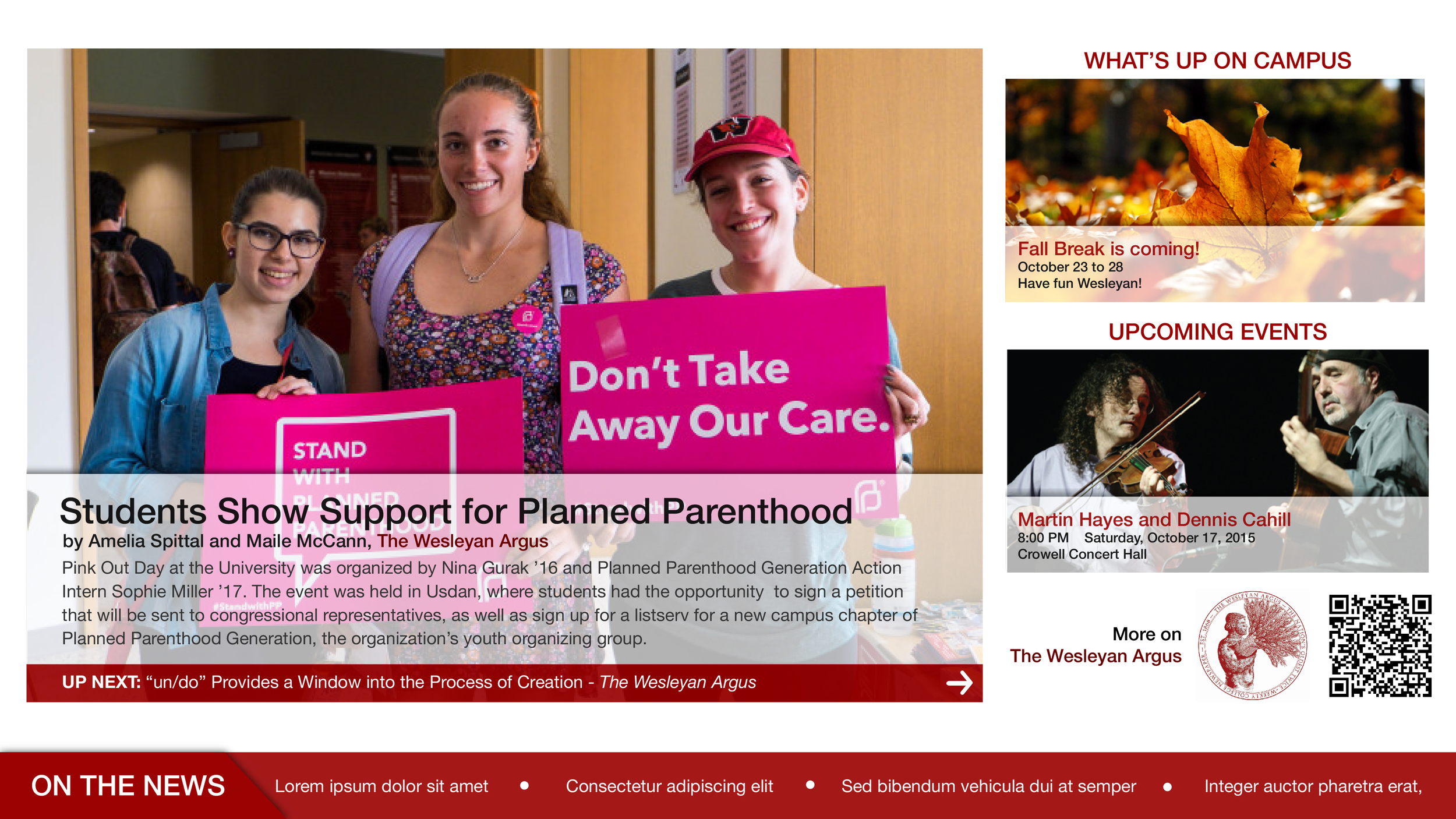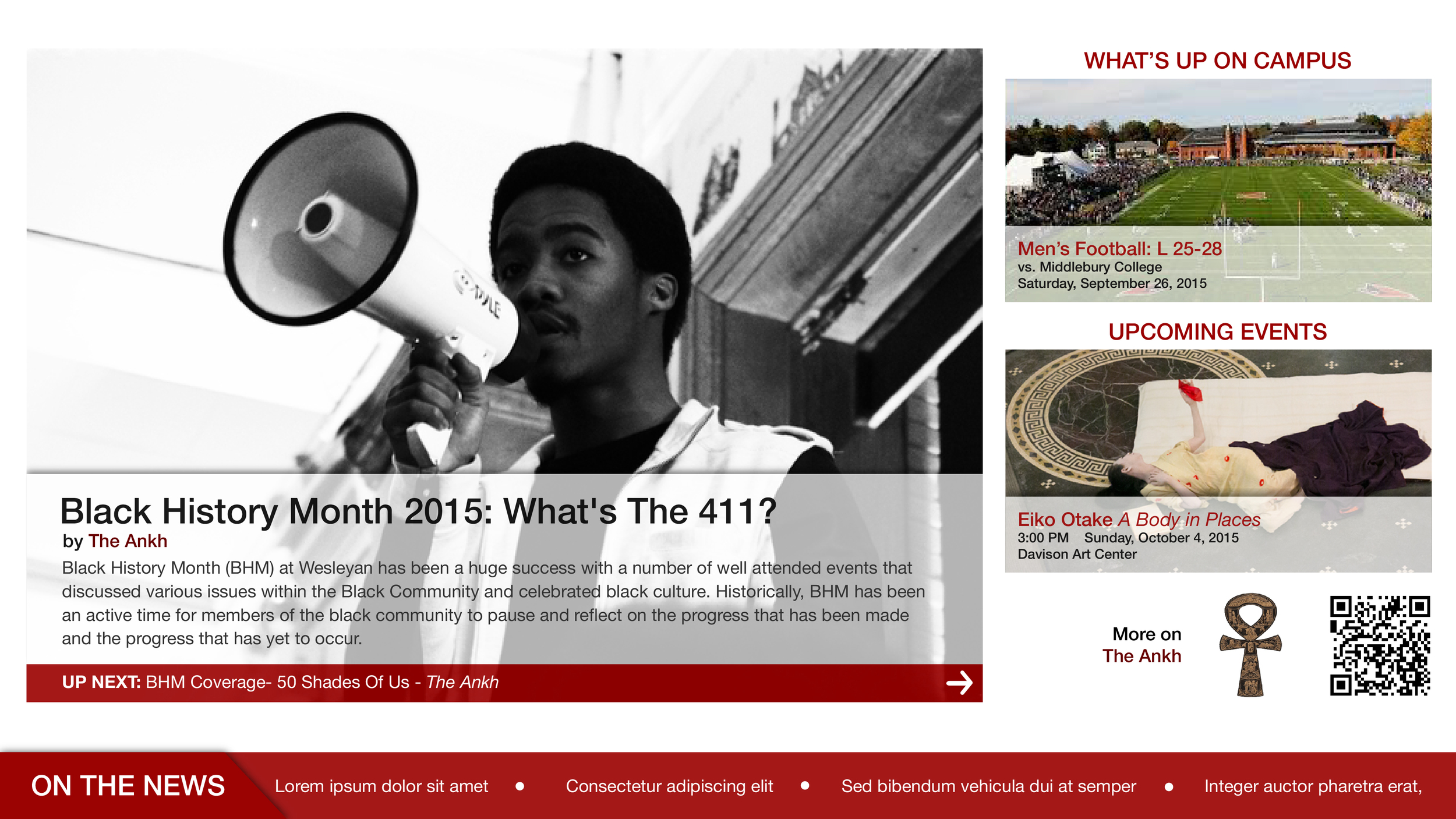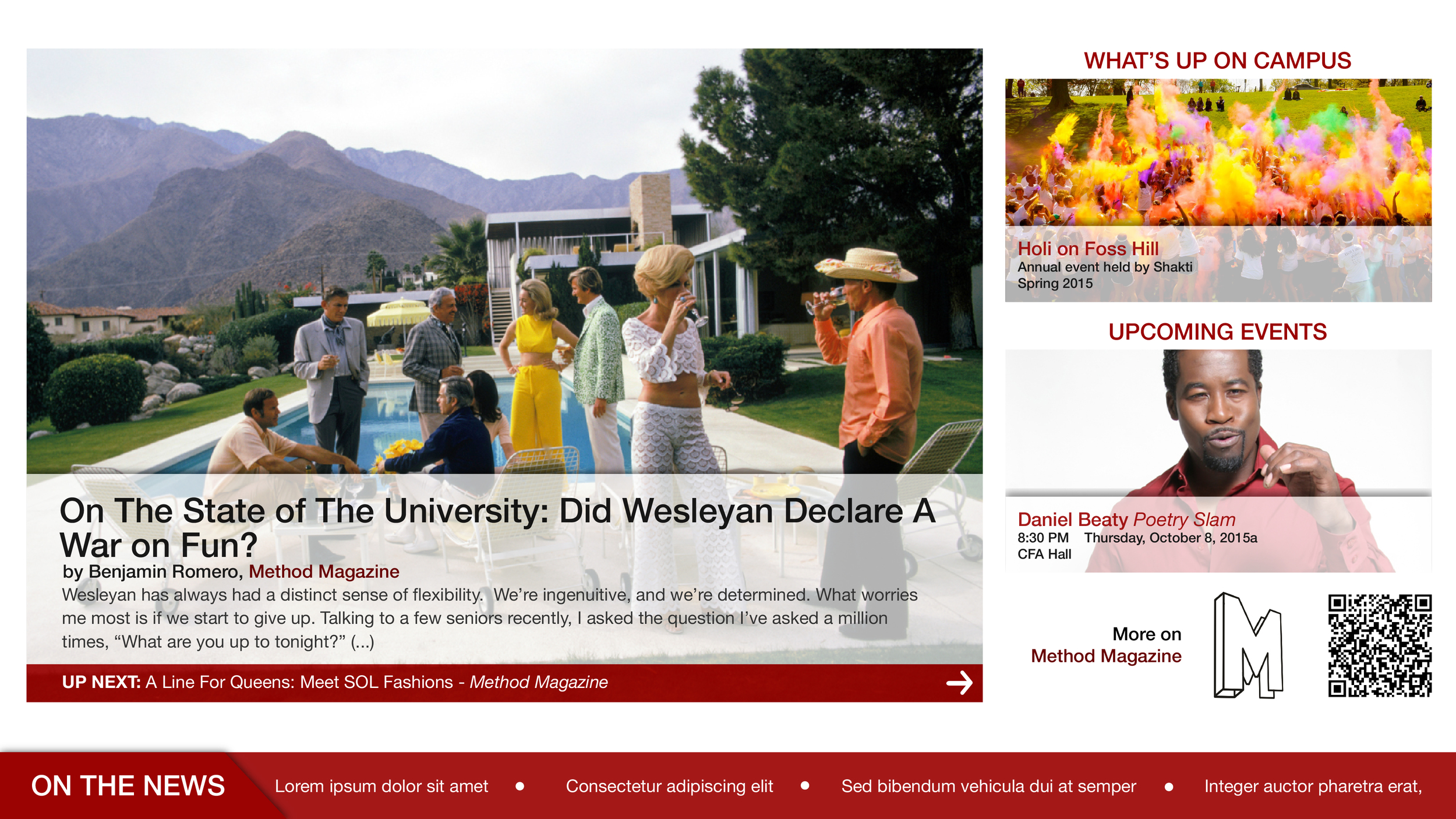Note: Resolution that passed on October 18th is different from the proposal text below. For the resolution that passed please go here.
Accurate Statements on Resolution
Patricia Bellinger, Executive Director & Adjunct Lecturer at The Harvard Kennedy School Center for Public Leadership
Shame on Boston Magazine! I would like to object strenuously to Boston Magazine's poor reporting and misleading coverage on the current issue at Wesleyan University. Not only have students NOT sought to "defund" one of the campus newspapers, but the student who wrote the original Op-ed at the heart of the controversy also participated in the drafting of the decried resolution. If you are interested in the facts of the situation at Wesleyan, an educational institution at which students have shown the leadership and engagement in important issues that we would hope to see in our young people, I direct your attention to the Op-Ed published today by Michael Roth, President of Wesleyan University, http://www.courant.com/opinion..., as well as a link to the actual resolution, which will clarify that it is not a resolution to defund the newspaper, http://static1.squarespace.com..., and finally, to a nuanced and accurate read of the entire situation by Angus Johnston, historian and professor of journalism at City University of New York: http://studentactivism.net/201...
Michael Roth, President of Wesleyan University
Unfortunately, in addition to sparking conversation, the op-ed also generated calls to punish the newspaper. Protests against newspapers, of course, are also part of free speech. But punishment, if successful, can have a chilling effect on future expression.
Many students (I think the great majority) quickly realized this and, contrary to what has been reported in the press, the student newspaper has not been defunded. Students are trying to figure out how to bring more perspectives to the public with digital platforms, and I am confident they can do this without undermining the Argus.
Commentators, perhaps weary of their impotence in the face of the perversion of free expression in politics by means of wealth, have weighed in on this so-called threat to free speech on college campuses. "What's the matter with kids today," these self-righteous critics ask, "don't they realize that America depends on freedom of expression?"
Angus Johnston, Professor of History at City University of New York
What the WSA approved yesterday was a resolution in support of the proposal, not the proposal itself. That resolution endorses the non-budgetary elements of the proposal — the stipends, the Facebook ads, the independent study plan, and the monitors — while launching a period of “study and debate” regarding the plan to fund the reforms through cutting the Argus print run, with that process to be completed by Fall 2016.
The resolution — which, again, does not cut funding to the Argus, and could lead to an increase in WSA funding for the paper if an alternate funding model is adopted — passed by a vote of twenty-seven to zero, with four abstentions. This is not, in short, the apocalypse suggested by the earliest reports. Neither does it appear, on its surface, to be the opening salvo in a WSA war against the paper.
Summary:
•Funding for The Wesleyan Argus staff and editors would be increased dramatically under this proposal (granted that the Argus does well in the ranking system) and funding for printing would be decreased. In short: people over paper.
•Funding for other student publications that opt-in will also rise dramatically under this proposal. See proposal below.
•This proposal will be worked on for the next few months, will a potential roll out Spring 2016 or Fall 2016.
•The process is being structured to encourage and invite feedback. The proposal has changed significantly over the past 20 days to address feedback from stakeholders.
Two main reasons this proposal exists:
To increase meaningful stipend positions for financial aid students.
This year...
+the Wesleyan Student Assembly (WSA) now covers 20% of work study allotment for our members that are eligible for the work study program. We cut costs to make this possible.
+Alex Garcia created the "Increasing Readership and Work-Study Positions at Publications" proposal to create 20 stipend positions for editors and writers while not increasing the amount allocated to publications. Proposed funding source would be money saved from printing.
+Currently writers and editors for Wesleyan’s most popular publications do not get paid, and as a result work-study students are often an underrepresented voice in current dialogue and Wesleyan’s historical archive.
To decrease paper waste.
This year...
+the WSA eliminated print copies of NYT and have instead provided all digital access for the whole student body (mobile phone apps, website, etc.). This saves us $23,000 annually.
+the school eliminated print copies of the orientation booklet and instead paid for the app service "Guidebook."
+the WSA and the Wesleyan Argus agreed to reduce the number of Argus copies from 3,000 a week to 2,000 a week. Future cuts in printing could save us an additional $17,000 that could be re-allocated for work study positions and digitization initiatives at publications (Wesleyan has 2,900 undergraduates and 200 graduate students).
+To see "A Case for Printing Less Article" click picture below.
Corrections to Current Media Quotes:
Media Quote:
“Wesleyan student government considers cutting the Argus’ printing budget in half after diversity debate.”
Tara Jeffries, Reporter, Student Press Law Center.
Clarifying Points:
•The WSA plans to consider reviewing a proposal that helps digitize the Wesleyan Argus and then uses the savings to fund 20 stipend positions for writers or editors at publications such as the Wesleyan Argus.
•At the Wesleyan Argus almost all staff, including the editors, are unpaid. This proposal takes small steps to change that not only at the Argus but other publications that choose to participate.
Free Speech Organization Quote:
"We urge the Wesleyan Student Assembly to reject any resolution calling for the reduction or elimination of funding to The Wesleyan Argus based on viewpoint. We appreciate your attention to FIRE’s concerns."
Peter Bonilla, Director, Individual Rights Defense Program.
Clarifying Points:
•Student government will not be deciding funding based on viewpoint.
•This proposal allows students to vote for two publications each year. The top two publications in terms of votes and the top two publications in terms of online readership would receive the additional funding for stipends and digital initiatives.
•The student body has a right to choose what publications they fund. This ranking system is much like how consumers in the real world choose to buy the newspaper and magazines of their choice.
•It is expected The Wesleyan Argus would do well in an all campus vote and also in ranking of online readership.
Full Proposal (Draft 4)
Last updated: 10-24-15 at 9AM.
NOTE: Resolution differs from proposal. Most recent file update now shows an annotated version of draft 4 that reflects elements of proposal that passed. Click below button called "RESOLUTION ON WSA SITE" to view what passed on 10-18-15.
Proposal Author: Alex Garcia '17
His Positions: WSA ITS Chair, Kai Entrepreneurship Wesleyan Co-President, and Patricelli Center for Social Entrepreneurship Peer Advisor.
Note: All content on this web page has been written by Alex Garcia and all views held are solely his, not those of any of the organizations of which he is a part of.





